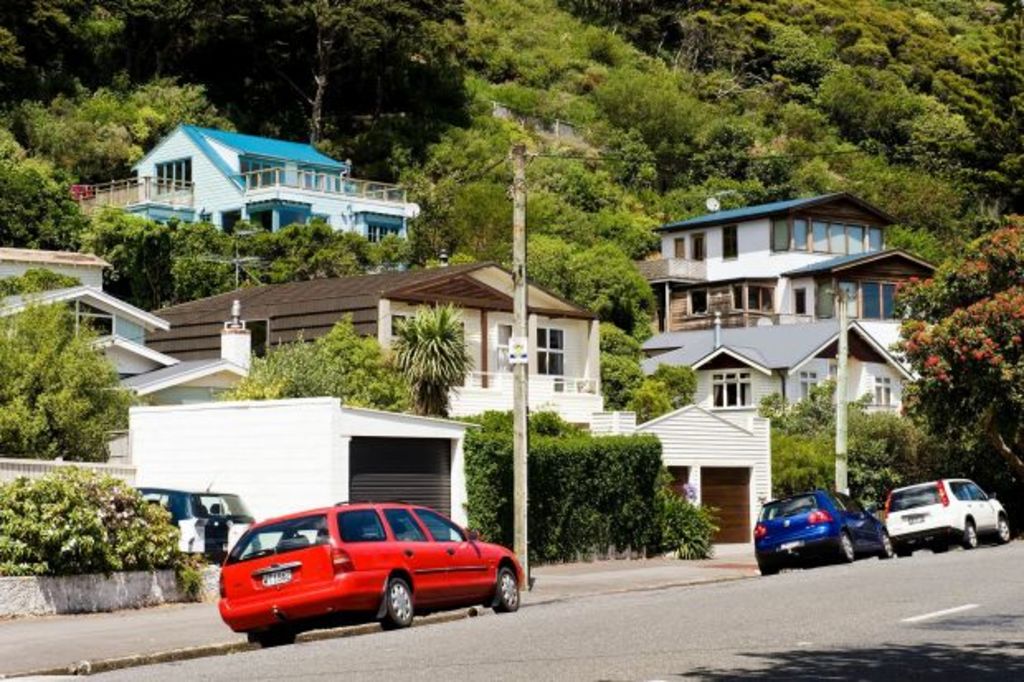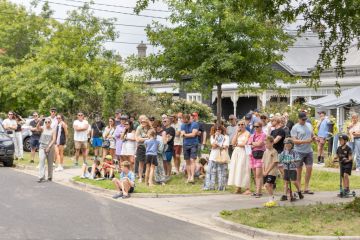New Zealanders, defeated by 'crazy' house prices, are tackling it at their upcoming elections

When Olivia Hollywood began hunting for her first house in Wellington early last year, she was optimistic that half a million New Zealand dollars would get her on the property ladder.
After eight months attending packed viewings and watching homes auctioned at vastly inflated prices, Hollywood and her partner abandoned their search. Since then, average prices in the Wellington area have gained another 13 per cent to exceed NZ$607,000 ($553,000). The couple is among thousands of Kiwis for whom home ownership is looking increasingly distant.
“It was frustrating for us because we did expect it was going to be quite easy,” said Hollywood, 24. “We decided it was just too crazy for us and we’d rather sit tight for a couple of years and save up a bit more.”
As ownership falls to the lowest since 1951, housing affordability is firing up voters ahead of New Zealand’s general election on September 23. The government is under attack for failing to respond to price surges that have forced many to ditch their property dreams.
New Labour leader Jacinda Ardern has made housing a key issue, helping restore the main opposition party in opinion polls and leaving the election too close to call.
“The government’s response has been too slow and inadequate for many because they’ve seen house prices rising very fast,” said Raymond Miller, professor of politics at Auckland University. “Some voters might well have a feeling of being let down by what they see as indifference to their plight. It’s the government’s Achilles’ heel.”
Prices across New Zealand have risen 34 per cent the past three years, fanned by record immigration, historically low interest rates and a supply shortage. That’s seen the portion of owner-occupied properties slump to 63 per cent of the nation’s 1.8 million homes in the second quarter, down from a peak of 74 per cent in the early 1990s.
In response, the ruling National Party has made more land available for development and increased deposit grants to first-home buyers. But it’s done little to curb immigration that’s added 201,000 to the population the past three years, while a policy of taxing profits on investment properties sold within two years of purchase has been criticised as too mild.
- Related: Colonial homestead abandoned in New Zealand
- Related: Punters transport home across New Zealand
- Related: New Zealand house for sale for $1
More Aggressive
Labour is pledging a more aggressive solution. It’s promising to ban property sales to non-resident foreigners who it says have fanned price pressures, and will extend the period in which investors will be subject to tax to five years. It wants to curb immigration, and plans to build 100,000 homes over 10 years and sell them at affordable prices.
“We’re going to get the government back into the business of building large numbers of affordable homes for first-home buyers like governments used to in this country,” Labour’s housing spokesman Phil Twyford said in a Television New Zealand interview. “The government has had nine years and they’ve just tinkered around the edges.”
Many New Zealanders are motivated to save for a home where they can bring up a family just as their parents and grandparents did. National will be wary that disillusioned home-buyers may turn their back on the party, thwarting its efforts to win a rare fourth term.
No party has won an outright majority since the South Pacific nation introduced proportional representation in 1996. National had 44 per cent support in a poll published Aug. 17. Labour had 37 per cent but could get across the line with the additional support of ally the Green Party, which had 4 per cent, and New Zealand First, which got 10 per cent.
Prime Minister Bill English is optimistic that housing affordability issues are on the wane. Home-loan interest rates are near 50-year lows and rising household incomes make mortgage payments more manageable. House-price inflation is slowing and a report this month predicted 196,500 homes will be built in the six years through 2022.
“We have a flat to falling market, with all those houses coming into the market, and rising incomes,” English told the New Zealand Herald last week. “Housing affordability is going to get better.”
His outlook isn’t guaranteed. Both National and Labour’s ambitions to build more homes may be derailed by skill shortages and capacity constraints in the construction industry.
The Treasury Department last week cut its forecasts for residential investment, and now projects a contraction in 2018, citing a lack of workers and bankers’ reluctance to lend to developers. It also expects the Reserve Bank to raise interest rates from mid-2018.
House prices rose just 1.6 per cent in the three months through July as central bank-imposed lending curbs, particularly on investors, started to bite. In the Auckland area, home to a third of New Zealand’s 4.7 million people, prices have fallen slightly since last year, but still average more than NZ$1 million.
“There’s still a fundamental supply-demand mismatch,” said Zoe Wallis, chief economist at Wellington-based Kiwibank. “People are viewing the price drop as a great opportunity to get into the market. We’re not expecting to see a large outright fall in Auckland prices because of that.”
That’s cold comfort for Olivia Hollywood in Wellington, who is waiting for the local market to allow her another shot. Prices in the capital have risen 5.7 per cent so far this year after surging 21 per cent in 2016.
“I think the market is coming back,” she said. “We are hoping it will drop a little bit more.”
We recommend
We thought you might like
States
Capital Cities
Capital Cities - Rentals
Popular Areas
Allhomes
More







